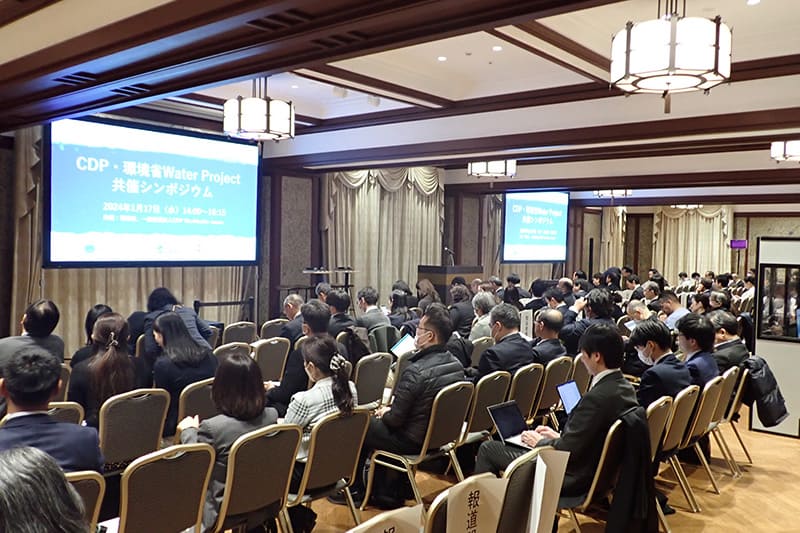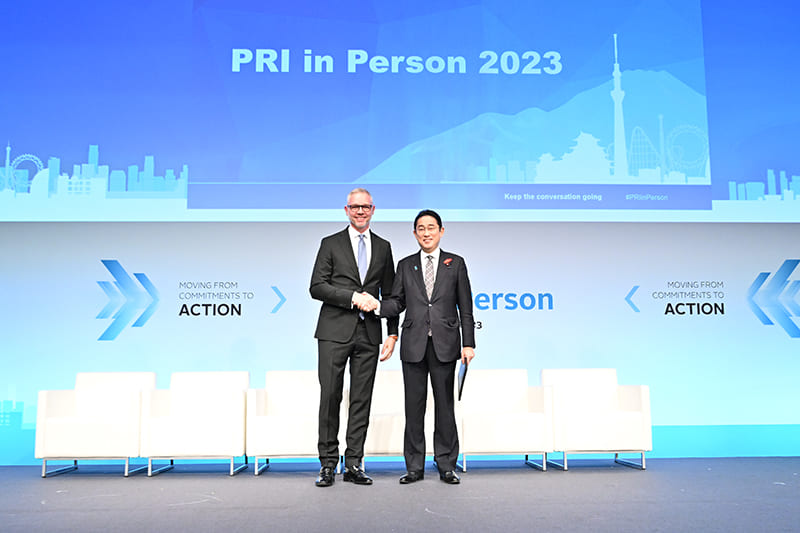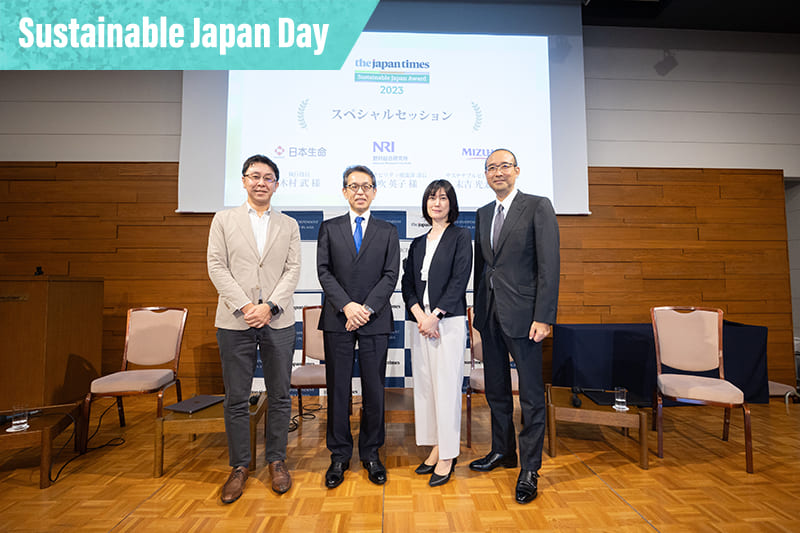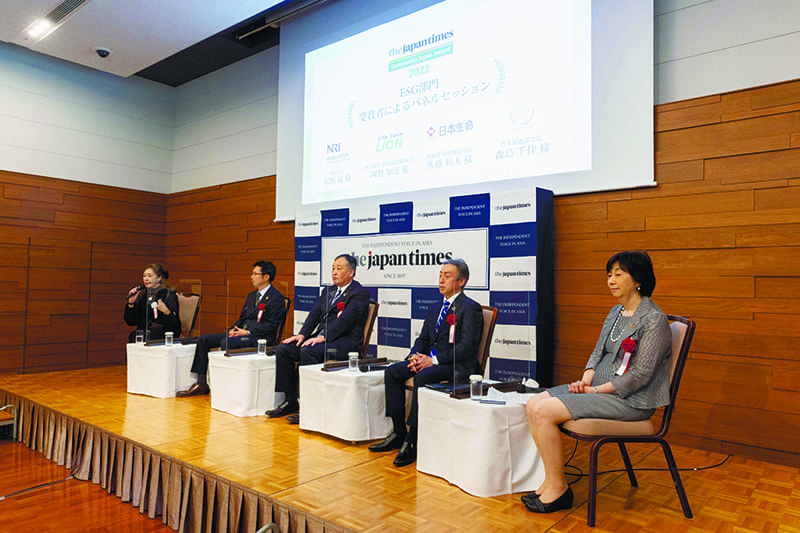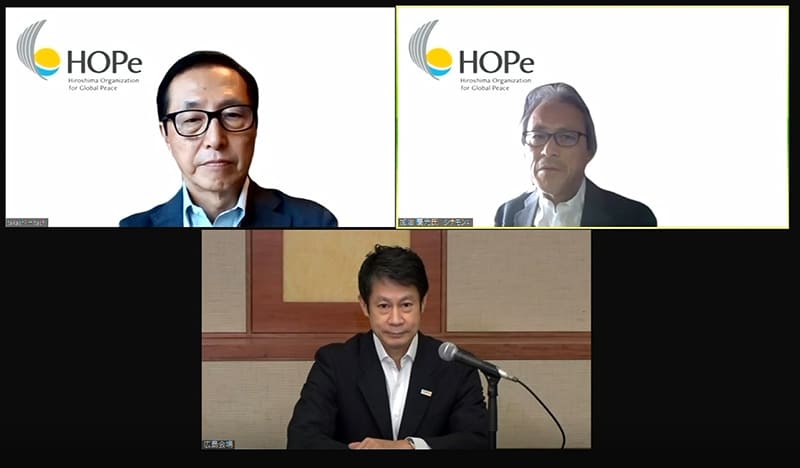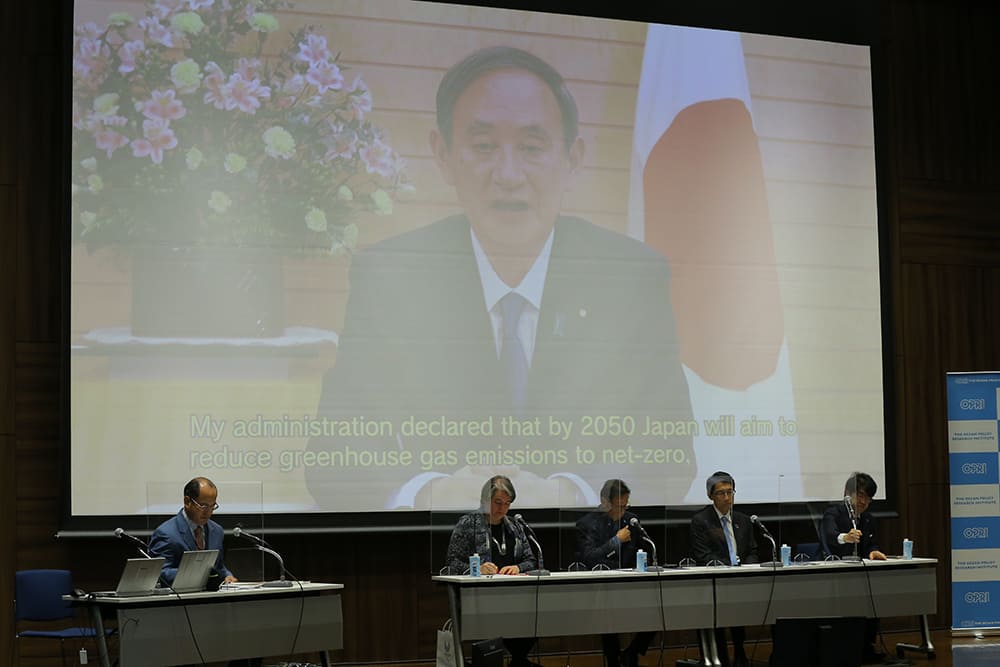April 14, 2025
World Ocean Summit and Expo seeks sustainable sea changes
Contributing writer
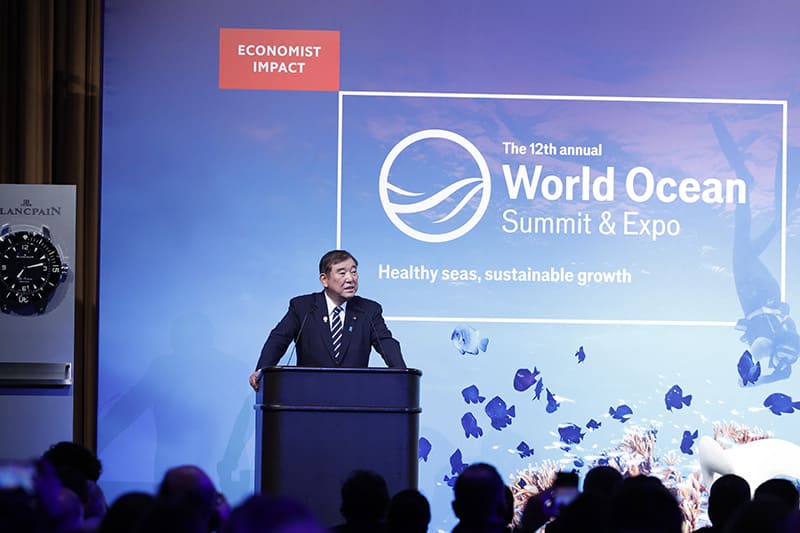
The 12th annual World Ocean Summit and Expo was held on March 12 and 13 at the ANA Intercontinental Tokyo Hotel in Tokyo’s Minato Ward, attracting more than 700 participants. It was organized by Economist Impact, a project of The Economist Group, a London-based media company, that aims to engage businesses, governments and foundations in finding solutions to pressing global issues. This was the first time the summit was held in Japan.
Supported by the official host, the Nippon Foundation, the summit brought together stakeholders in the ocean community from all sides — business, government, civil society and academia — to inspire new collaborations and strategies to achieve the United Nations’ 14th sustainable development goal, on conserving and sustainably using marine resources.
More than 160 speakers shared their insights in about 80 sessions, which took various forms including speeches, panel discussions, interviews, presentations and workshops. The sessions covered a wide range of topics: ocean climate impacts and solutions, marine pollution, a sustainable “blue economy,” food systems and technology, ocean science and infrastructure, financing ocean restoration, ocean stewardship, coastal ecosystems, tourism and the development of small island states. A reception and networking breaks were also held to facilitate interactions that could lead to future collaborations to restore ocean health.
The first day of the summit featured a panel session titled “Putting nature at the center of the sustainable ocean economy.” Using the example of the difficulty of assessing the values of standing trees and swimming fish versus cut timber and caught fish, Naoko Ishii, the executive director of the Center for Global Commons, said the fundamental challenge for nature, including the ocean, is how to update current economic, accounting and market systems to recognize the full value of natural capital and “put nature on the balance sheet.”
Miyuki Zeniya, the group chief sustainability officer of Mitsubishi UFJ Financial Group and chief sustainability officer of MUFG Bank, pointed out that the issue of ownership makes it particularly difficult to assess the value of the ocean in financial terms, whereas the value of land can be calculated because it is owned by someone and can be traded.
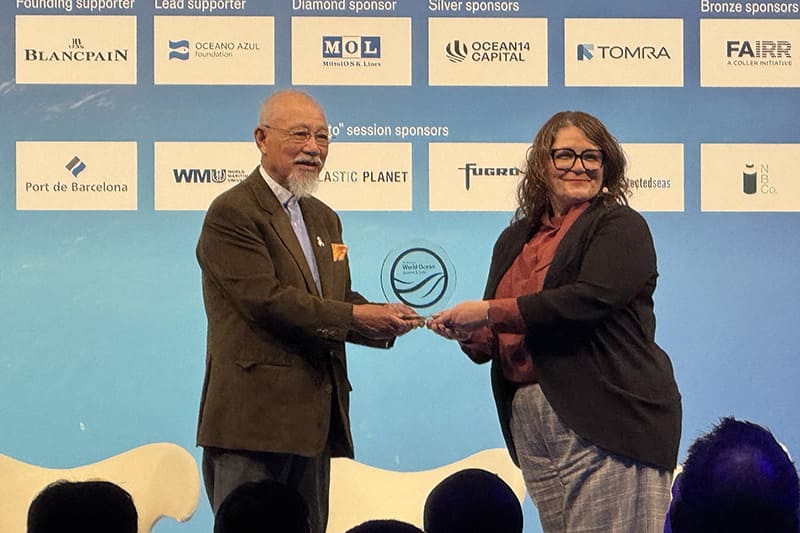
Pascal Lamy, the chair of the European Starfish Mission and adviser to the Back to Blue Initiative, agreed that people know much more about the land than the ocean, and added that there is also an emotional gap that makes people believe that ocean issues are happening somewhere far away. He also pointed to the missed opportunity of not investing in the ocean’s vast assets, saying, “What creates the investment momentum is the evidence that it makes financial sense to invest money in conservation, in sustainable decarbonized shipping, in addressing coastal rights to the sea, in protecting coral reefs.”
Elizabeth McLeod, the global ocean director for The Nature Conservancy, also addressed the need to “quantify the benefits of ecosystem services and support the regulatory environment, policies that encourage greater investment in the ocean.” She explained that global organizations such as The Nature Conservancy are “helping to build the scientific foundation and catalyze the radical partnership across finance, the private sector and conservation, governments and communities” so that investable projects of different scales can be developed to conserve nature while ensuring that the benefits flow back to communities.
At the end of the first day, Prime Minister Shigeru Ishiba delivered a speech in which he expressed his commitment to making Japan a maritime power that takes greater responsibility for maritime security and peace. “We wish to deepen cooperation with coast guards and navies of other nations, including Southeast Asian countries, to maintain peace at sea,” he said.
The second day of the summit was also packed with opportunities to listen to and interact with a diverse range of ocean experts, including the panel discussion “30×30: Scaling up and the art of the possible,” featuring officials and experts from four international organizations discussing realistic efforts to achieve the goal of protecting 30% of the oceans by 2030, as agreed on under the U.N.’s Global Biodiversity Framework.
At the end of the second day, Yohei Sasakawa, the chairman of the Nippon Foundation, took the stage to pass the baton to Myungjin Kim, the director-general of the International Cooperation Bureau in the Ministry of Oceans and Fisheries of South Korea — the host country of the upcoming Our Ocean Conference from April 28 to 30 — and Kaili Levesque, the associate deputy minister of Fisheries and Oceans Canada, which will host the 13th annual World Ocean Summit and Expo on March 3 and 4, 2026. Both events are expected to further accelerate global efforts and strengthen cooperation to conserve and restore the marine environment.

